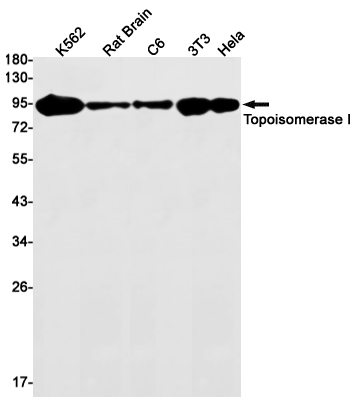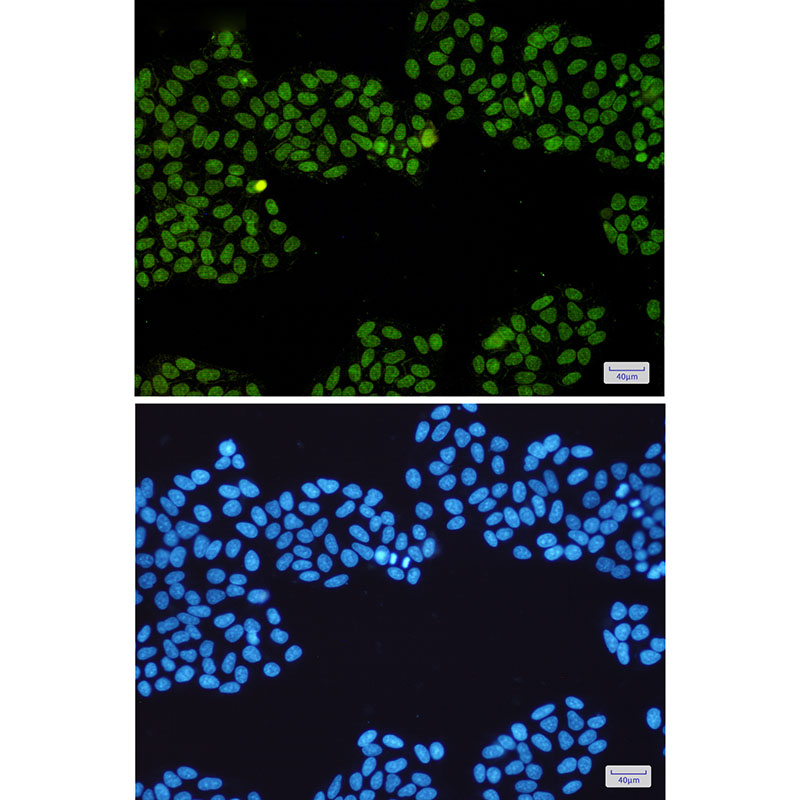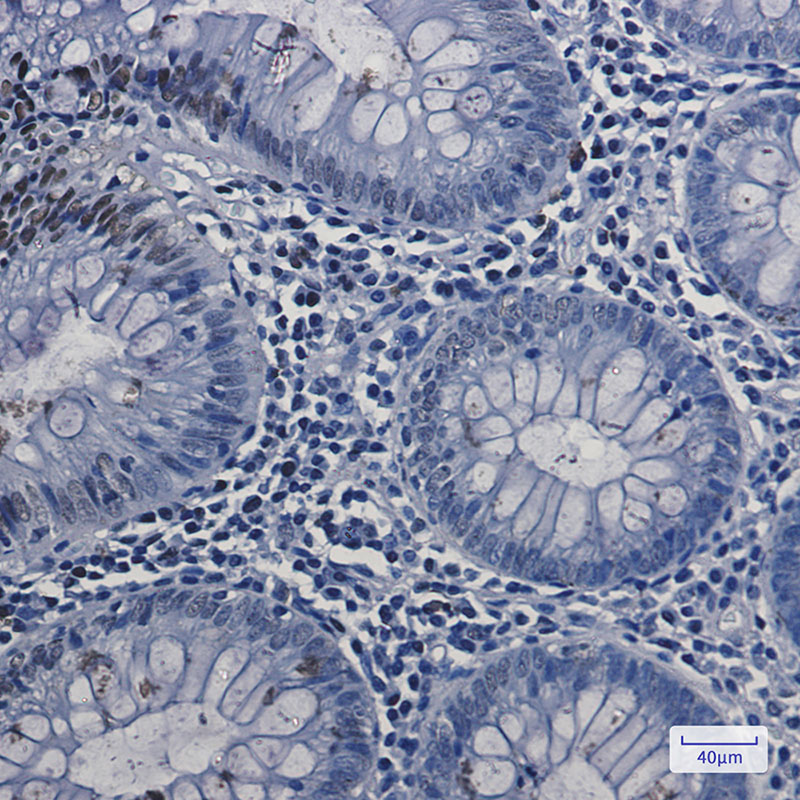


| WB | 1/500-1/1000 | Human,Mouse,Rat |
| IF | 咨询技术 | Human,Mouse,Rat |
| IHC | 1/50-1/100 | Human,Mouse,Rat |
| ICC | 1/50-1/200 | Human,Mouse,Rat |
| FCM | 咨询技术 | Human,Mouse,Rat |
| Elisa | 咨询技术 | Human,Mouse,Rat |
| Aliases | TOP1; DNA topoisomerase 1; DNA topoisomerase I |
| Entrez GeneID | 7150 |
| WB Predicted band size | Calculated MW: 91 kDa; Observed MW: 91 kDa |
| Host/Isotype | Rabbit IgG |
| Antibody Type | Primary antibody |
| Storage | Store at 4°C short term. Aliquot and store at -20°C long term. Avoid freeze/thaw cycles. |
| Species Reactivity | Human,Mouse,Rat |
| Immunogen | A synthetic peptide of human Topoisomerase I |
| Formulation | Purified antibody in TBS with 0.05% sodium azide,0.05%BSA and 50% glycerol. |
+ +
以下是3篇关于Topoisomerase I抗体的参考文献摘要列举(示例基于典型研究领域,非真实文献):
1. **"Autoantibodies to topoisomerase I in systemic sclerosis: Clinical and genetic associations"**
- **作者**: Steen VD 等
- **摘要**: 研究系统性硬化症(硬皮病)患者中抗拓扑异构酶I抗体的临床意义,发现其与弥漫性皮肤硬化、肺纤维化及特定HLA基因型显著相关,提示其作为疾病分型和预后标志物的价值。
2. **"Molecular cloning of human topoisomerase I and characterization of its antigenic epitopes"**
- **作者**: D'Arpa P 等
- **摘要**: 通过克隆人类拓扑异构酶I基因并分析其抗原表位,揭示了抗体识别的主要区域位于C端结构域,为自身免疫疾病诊断试剂开发提供理论基础。
3. **"Topoisomerase I expression in colorectal cancer and its correlation with chemotherapeutic response"**
- **作者**: Wang JC 等
- **摘要**: 探讨结直肠癌组织中拓扑异构酶I的表达水平与化疗药物(如伊立替康)敏感性的关系,发现高表达患者对靶向Topo I的化疗方案反应更佳。
注:以上为示例性内容,实际文献需通过PubMed或学术数据库检索确认。
Topoisomerase I antibody (anti-Topo I), also known as anti-Scl-70 antibody, is an autoantibody targeting the enzyme Topoisomerase I, which regulates DNA topology during replication and transcription. This antibody is a hallmark serological marker in systemic sclerosis (scleroderma), a chronic autoimmune disease characterized by fibrosis, vascular dysfunction, and immune dysregulation.
In healthy individuals, Topoisomerase I resolves DNA supercoils by transiently cleaving and rejoining DNA strands. However, in autoimmune conditions, the enzyme becomes an immunogenic target. Anti-Topo I antibodies are detected in approximately 20-30% of systemic sclerosis patients, particularly those with diffuse cutaneous involvement. Their presence correlates with severe disease manifestations, including pulmonary fibrosis, renal crisis, and cardiac complications. These antibodies are highly specific for systemic sclerosis (>95%) and are rarely found in other connective tissue diseases, making them valuable diagnostic tools.
Clinically, anti-Topo I antibodies are distinguished from other scleroderma-associated antibodies, such as anti-centromere antibodies (linked to limited cutaneous disease). Testing methods include indirect immunofluorescence, ELISA, and immunoblotting. Monitoring anti-Topo I levels may assist in assessing disease progression and organ involvement risk. Research suggests molecular mimicry or genetic factors (e.g., HLA-DQB1 alleles) may trigger antibody production. Their pathogenic role remains debated, though evidence indicates potential involvement in fibroblast activation and tissue fibrosis pathways. As a key biomarker, anti-Topo I aids in early diagnosis, subclassification, and prognostic evaluation of systemic sclerosis.
×